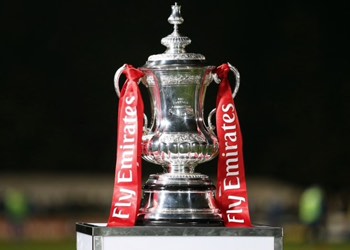Fans Comment
Time to end this corrupt transfer system There is one very simple way to limit the so-called �bung culture�, the bullying primacy of agents, the deep-rooted corruption in the game and the leaching of money out of football: Eliminate the transfer system. When you examine it closely, there is no purpose any longer in the transfer system other to enrich players, agents and the peripheral bloodsuckers and wide boys who have always attached themselves to big deals. Football is an entertainment sector business masquerading as a sport � and there is no other business on earth that would allow a transfer system similar to the one that has evolved in football to do this kind of damage to its public image or its economic well-being. The transfer system can be replaced by a system in which relatively short contracts are honored in their entirety. These could be maximum two-year contracts with an two-way option for a third at a pre-agreed salary. During the final weeks of the final year, any club could offer personal terms. There would be no transfers, no transfer fees and no transfer windows. Agents would still represent players, but they would have specified roles and be paid, only by the players, a maximum 12 per cent of their earnings. Unsettled players would still move to other clubs if all parties agreed, and even be traded one-for-one, but they would officially be on loan until the end of their contract period. The primary justification of the transfer system has always been to compensate clubs for the loss of an important player�s services, especially where a relatively small club has discovered or developed a valuable young player. At one time, before TV money and merchandising and astronomic salaries, transfer fees were the only large scale redistribution of money in the entire game. There is no reason for transfer fees anymore. As compensation for �selling� clubs who develop or discover players, clubs who hold a player�s first professional contract could be paid an established standard �development fee� by the club or clubs who agree his two subsequent contracts. There is a danger that such a system would simply drive transfer fees under the table and that the entire transfer system would still exist in the shadows. But any set of regulations depends on the willingness of the authorities to enforce them. And if football as an institution is not going to enforce a simple set of rules governing honorable and ethical behavior then the civil authorities should step in. Right now there are stricter regulations governing estate agents and home sales than there are on sports agents and transfers. It would be a mistake to assume that all the bad boys are agents. Take the transfer of Wayne Rooney. In that legalized abduction, officials from two Premiership clubs, Newcastle and Manchester United, players from Liverpool, Manchester United and even our own players at Everton played a role in persuading Rooney, while he was under contract to Everton, to become a Manchester United player. In any other business this would be subornation of breach of contract and would be actionable. In football it�s business as usual. Ultimately, however, it seems Rooney actually became a Manchester United player, not when final terms were agreed between Everton and Manchester United, but the moment he signed with Paul Stretford. As Stretford was acting as an agent of Manchester United, Rooney�s final destination was surely inevitable from that moment. That alone makes that transfer an outrage. If Wayne Rooney�s was the only headline-grabbing transfer that exuded the acrid whiff of wrongdoing then perhaps some tinkering could be done to simply reform the system. But too many major transfers seem to carry questions for that. Think of Roy Carroll�s transfer from Wigan to Manchester United. Did anyone really need to be paid �300k pounds to persuade him to leave Wigan? The transfers of Edu, Saha, Kleberson, Tim Howard, when an agent was paid 30% of the transfer fee; Jaap Stam, and Harry Kewell�s transfer from Leeds to Liverpool all came with winks, nods and plenty of unanswered questions. That�s not to say that corruption and unethical behavior is a recent phenomenon. Years ago, before agents grabbed control of the game, players were paid a percentage of their own transfer fees if they were transferred against their will but nothing if they asked for a transfer. So players would deliberately play poorly for a few weeks in order to trigger a transfer � or simply offer to give a manager a piece of the action for transferring him. I believe the system is beyond reform and is better abandoned. Apart from spreading money about among the worst elements and giving sports writers something to speculate about between matches, what is the significant over-riding positive purpose of transfer fees post-Bosman that makes football cling to it so urgently? Get rid of it and most of the corruption in football with it. Peter Fearon Responses: "Fans Comment" articles are submitted by outside contributors to ToffeeWeb. The views contained therein may not correspond with those of the site owners. Editorial policy
©2006 ToffeeWeb |










